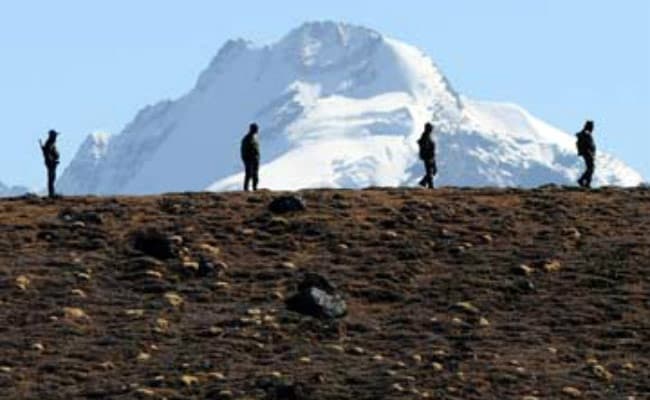
India and China share a 4,000-km boundary. (File)
New Delhi:
The recent Chinese intrusion into Arunachal Pradesh was an "inadvertent border crosswalk" by some labourers and did not involve Chinese troops, according to a report by the National Security Council, an apex body that advises the Prime Minister on security-related issues.
According to highly placed sources, the report said the group was tasked with construction work and was unaware they were on Indian territory before they were confronted by the Indo-Tibetan Border Police (ITBP). It added the group had no involvement with the Chinese People's Liberation Army.
The area where the intrusion occurred is in Bishing of Upper Siang district, along the Line of Actual Control (LAC) and the two countries do not have an agreed border in this area. Given the mountain terrain and winding topography, the road construction group entered the Indian side where they built a track more than 600 meters long.
The report that analysed the incident that took place around December 26 said the intrusion was not planned. When the road building party was confronted by the ITBP, they left the equipment and ran away.
China has approached the Indian side and requested that the equipment be returned, which includes a JCB and a water tanker.
Sources said the Indian side was likely to return the equipment whenever the next meeting at the border was held.
India and China share a nearly 4,000-km boundary. China claims Arunachal Pradesh is part of South Tibet
The incident had raised concerns similar to what happened in mid-June last year when Indian soldiers crossed the Sikkim border to stop the construction of a Chinese road near the "Chicken's Neck," a thin strip that links India to its northeastern states. This resulted in a 73-day stand-off.
Chinese Foreign Minister Wang Yi admitted the stand-off put a "severe" strain on bilateral ties.
In December, Indian National Security Adviser Ajit Doval and Chinese State Councillor and Communist Party of China leader Yang Jiechi held the 20th Meeting of Special Representatives of India and China on border issues.
The two sides called the talks "positive and focused" and agreed to seek "mutually acceptable resolutions of their differences.
According to highly placed sources, the report said the group was tasked with construction work and was unaware they were on Indian territory before they were confronted by the Indo-Tibetan Border Police (ITBP). It added the group had no involvement with the Chinese People's Liberation Army.
The area where the intrusion occurred is in Bishing of Upper Siang district, along the Line of Actual Control (LAC) and the two countries do not have an agreed border in this area. Given the mountain terrain and winding topography, the road construction group entered the Indian side where they built a track more than 600 meters long.
The report that analysed the incident that took place around December 26 said the intrusion was not planned. When the road building party was confronted by the ITBP, they left the equipment and ran away.
China has approached the Indian side and requested that the equipment be returned, which includes a JCB and a water tanker.
Sources said the Indian side was likely to return the equipment whenever the next meeting at the border was held.
India and China share a nearly 4,000-km boundary. China claims Arunachal Pradesh is part of South Tibet
The incident had raised concerns similar to what happened in mid-June last year when Indian soldiers crossed the Sikkim border to stop the construction of a Chinese road near the "Chicken's Neck," a thin strip that links India to its northeastern states. This resulted in a 73-day stand-off.
Chinese Foreign Minister Wang Yi admitted the stand-off put a "severe" strain on bilateral ties.
In December, Indian National Security Adviser Ajit Doval and Chinese State Councillor and Communist Party of China leader Yang Jiechi held the 20th Meeting of Special Representatives of India and China on border issues.
The two sides called the talks "positive and focused" and agreed to seek "mutually acceptable resolutions of their differences.
Track Latest News Live on NDTV.com and get news updates from India and around the world

